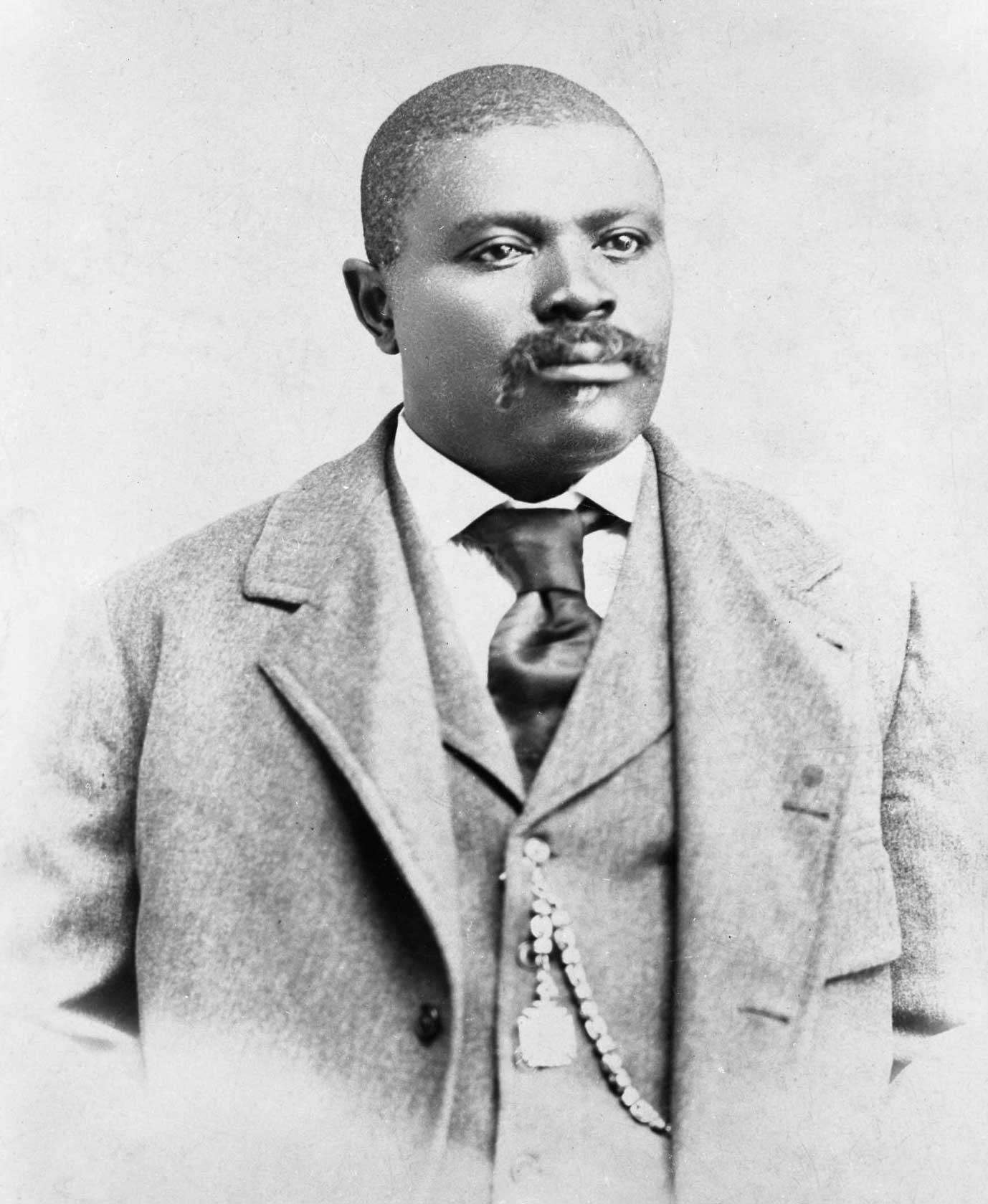The Encyclopedia of Oklahoma History and Culture
PERKINS, GEORGE NAPIER (1842–1914).
Editor and Civil Rights activist George Napier Perkins was born in Williamson County, Tennessee, on January 1, 1842. After a move to Little Rock at the age of fifteen, he served in the U.S. Army for three years, married Maggie A. Delards of Fort Smith in 1867, finished his education, and was admitted to the Arkansas bar in 1875. During the Brooks-Baxter War, occurring during Reconstruction in Arkansas, Perkins served as an officer in the conservative Brooks faction's struggle for the governorship. The political activist was one of four African American delegates to the Arkansas Constitutional Convention, a two-term alderman on the Little Rock City Council, and justice of the peace for Campbell Township. He continued to pressure white Republicans for more African American participation and was an opponent of the pending Separate Coach Act of 1890. With its passage, Perkins migrated to Oklahoma.
In Guthrie, the territorial capital, he served as an alternate delegate to the Republican Convention in 1891. Other than Green I. Currin in the First Territorial Legislature, David Wallace in the Second Legislature, and Edward P. McCabe, deputy auditor, Blacks were shut out of territorial politics. Perkins served on the Guthrie City Council from 1894 to 1902 and ran for police judge of Guthrie in 1896. Although Blacks had only moderate success in the 1904 election, Guthrie was labeled "a Black town" by critical whites. As one of the 311 delegates attending the Republican Territorial League meeting, Perkins found the color line drawn in territorial politics, and the Supreme Court case Plessy v. Ferguson (1896) only confirmed it.
To meet the challenge for Black political survival, he purchased a Guthrie paper, the Oklahoma Guide. Started in 1892, it became the longest continuously published Black urban weekly in Oklahoma Territory. He used the Guide, as editor and publisher, to enthusiastically defend the civil rights of Blacks and attack the fear of Black domination among whites.
When African Americans were excluded from the early state conventions, Perkins urged a Negro statehood convention to send a delegation to Washington, D.C., to lobby for a single statehood bill rather than a twin-state bill. He endorsed the Hamilton Bill guaranteeing civil rights and equal protection under the law. It was imperative to him to support the Negro Protective League, whose function was to keep the people informed politically in the territories now that the Democrats were the political majority. When white Oklahomans endorsed a "separate facilities" proposal, he exchanged letters with William H. Murray, president of the Oklahoma Constitutional Convention, urging him to use his influence to defeat the proposal. With its passage, the Jim Crow Committee was organized to ensure that if things were to be separate, they must also be equal. When the state Democrats also used the grandfather clause to deny the vote to Blacks, he again personally appealed to the governor and encouraged Blacks to bring suits in the federal courts. George Napier Perkins died on October 6, 1914, shortly before the Supreme Court declared the grandfather clause unconstitutional on June 21, 1915. His long and vigorous protest for civil rights earned him the title of "the African Lion."
See Also
AFRICAN AMERICANS, CIVIL RIGHTS MOVEMENT, GREEN I. CURRIN, ROSCOE DUNJEE, GUINN v. UNITED STATES, ALBERT COMSTOCK HAMLIN, EDWARD P. McCABE, NEWSPAPERS–AFRICAN AMERICAN, REPUBLICAN PARTY, SEGREGATION, SENATE BILL ONE, ANDREW J. SMITHERMAN, WILLIAM HENRY TWINE, DAVID J. WALLACE
Learn More
Herbert Apthekar, ed., A Documentary History of the Negro People in the United States, Vol. 2 (New York: Citadel Press, 1966).
Harry S. Ashmore, Arkansas: A Bicentennial History (New York: W. W. Norton & Company, 1978).
John M. Harrell, The Brooks and Baxter War: A History of the Reconstruction Period in Arkansas (St. Louis, Mo.: Slowson Printing Co., 1893).
Oklahoma Guide (Guthrie, Oklahoma), 1893–1919.
Thomas S. Staples, Reconstruction in Arkansas, 1862–1874 (Gloucester, Mass.: Peter Smith, 1964).
Arthur L. Tolson, The Black Oklahomans: A History, 1541–1972 (New Orleans, La.: Edwards Printing Co., 1972).
Citation
The following (as per The Chicago Manual of Style, 17th edition) is the preferred citation for articles:
Nudie E. Williams, “Perkins, George Napier,” The Encyclopedia of Oklahoma History and Culture, https://www.okhistory.org/publications/enc/entry?entry=PE016.
Published January 15, 2010
Last updated July 29, 2024
© Oklahoma Historical Society


